Physical Address
304 North Cardinal St.
Dorchester Center, MA 02124
Physical Address
304 North Cardinal St.
Dorchester Center, MA 02124
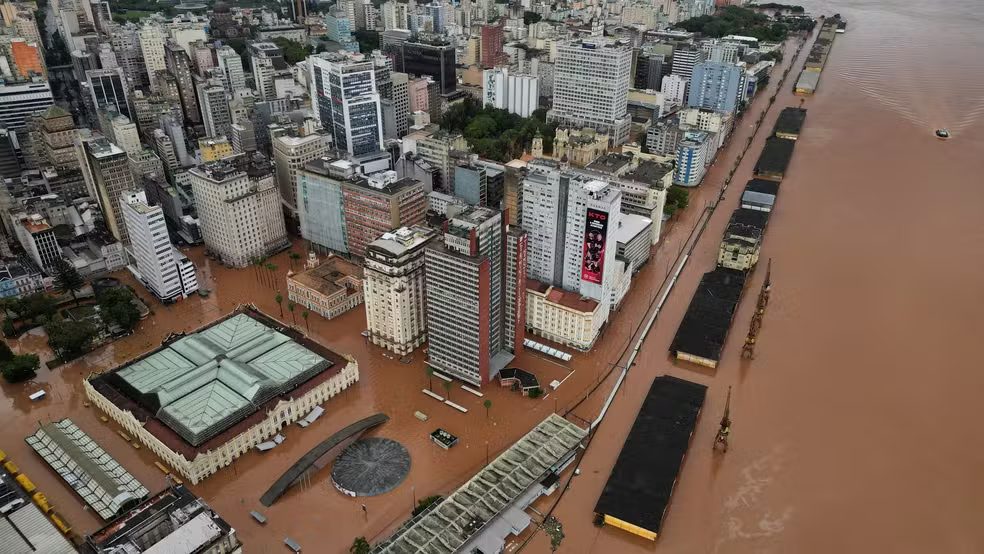
Update: Support the recovery work of Responsive Cities Institute by donating via PayPal.
Last year, Alain Bertaud and I traveled to Porto Alegre and spent time learning from the excellent architects and urbanists at the Responsive Cities Institute – you can think of it as a practitioner-led, intellectual movement that leans into the good parts of Smart Cities while retaining a humble, Bertauvian respect and love for emergent order.
This week, the Responsive Cities Institute has been thrown into the crucible of their city’s greatest disaster. Immediately, they put their talents and principles into action. With their permission, I’ve copied this week’s email chain between architect Rodrigo Rocha and Alain. I’ve edited it for length and to remove any information that seemed personal.
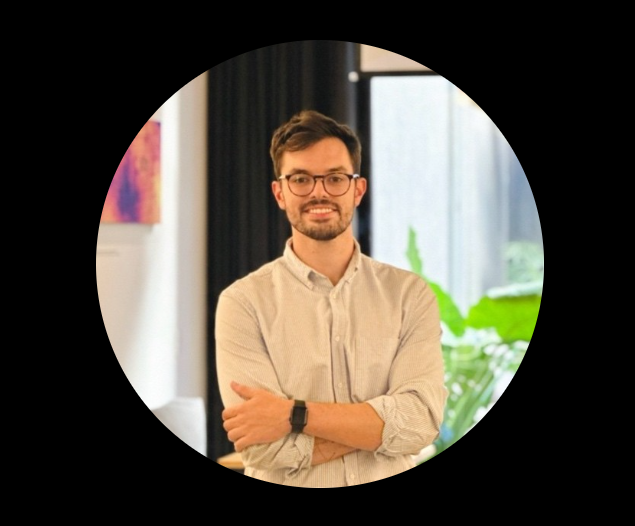
From: Rodrigo Rocha
Sent: Monday, May 6, 2024
To: Alain Bertaud
Subject: Porto Alegre – Brazil’s Worst Climate Crisis
Hello Alain, how are you? I hope you are well.
Unfortunately, I cannot say the same. I don’t know if you have seen it somewhere, but Porto Alegre and the entire state are suffering the worst climate crisis in history. The north of the state experienced heavy rains that accumulated in the rivers that flow into the Guaíba Lake in the capital. Both Porto Alegre and other coastal cities were completely flooded.
The lake level rose to 5.35m (the largest flood Porto Alegre had ever experienced was in 1941, reaching up to 4.7m)…

In the state, we have more than 15,000 people in shelters, 80,000 displaced, and 710,000 affected (and counting). Several cities have been completely overtaken by water. Those that weren’t devastated by the floods are suffering from a lack of water supply, fuel, and power. Many roads are blocked due to landslides, and the airport is flooded. It’s complete chaos.
At the Responsive Cities Institute, we are designing a three-step plan to assist the public authorities in organizing.
Step 1: Mapping (Emergency)
Step 2: Shelter (Temporary)
Step 3: Rebuild (Definitive)
Your experience would be extremely valuable in developing this plan. We need to think about projects that address the problem of future floods, completely reurbanize affected cities, and design a way to quickly finance this. During your time at the World Bank, did you have any similar experience? Also, do you have any bibliography that you think would be interesting for us to study?
…It would be great to have your opinion and critique on the plan we are drawing up. I look forward to your response,
Best regards, Rodrigo
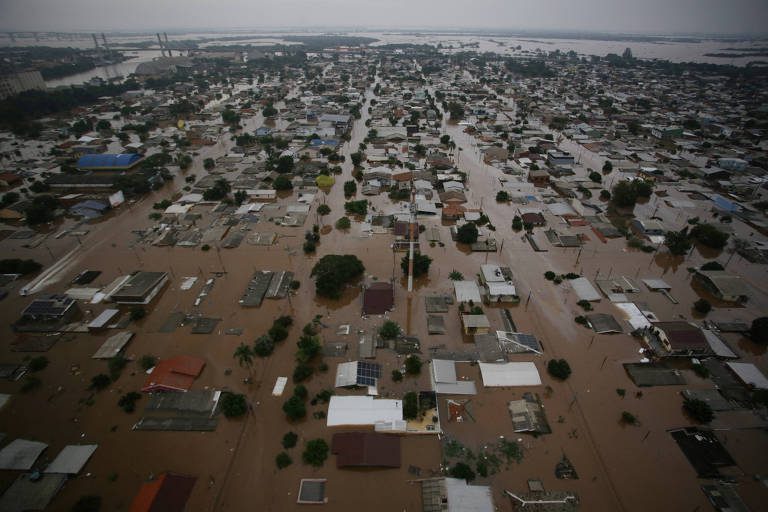

From: Alain Bertaud
Sent: Tuesday, May 7, 2024
To: Rodrigo Rocha
Subject: Re: Porto Alegre – Brazil’s Worst Climate Crisis
I feel terribly sad looking at your pictures and data. Porto Alegre has a special meaning for me because of two visits and the wonderful people I met there..
The rapid mapping exercise that the Responsive Cities Institute is doing is critical.
Concerning shelter for refugees, I doubt the municipality will find enough empty public housing or formal shelter to house the large urban population that the flood displaced. It will then be obliged to establish refugee camps using temporary shelters made of redesigned containers.
My advice…is to avoid rehousing households who have lost their house in large refugee camps far from inhabited areas—although it is expedient to do so from a relief management point of view. It is better to locate refugees in habitable containers in small settlements very close to urban areas that are still intact.
The advantage of small temporary resettlement camps is that they give refugees easy access to already functioning social services and commerce. Kids can join schools immediately, even if the class size increases slightly. The existing population can also assist refugees in an informal, helpful way, provided the camps are small enough (less than, say, 200 families) to avoid overwhelming the existing settled population. By contrast, the proximity of huge refugee camps quickly generates an adverse reaction from the host population.
I am afraid that my advice might be irrelevant to your extraordinary catastrophic situation.
I am also concerned about the medium-term impact of the flood on the economy, in particular, the closing of the airport. I have never encountered a situation like that before…
I feel a bit ashamed to provide such superficial advice from the comfort of my hotel room… With my warm regards,
Alain
From: Rodrigo Rocha
Sent: Wednesday, May 8, 2024
To: Alain Bertaud
Subject: Re: Porto Alegre – Brazil’s Worst Climate Crisis
Good morning Alain,
Following the end of this email, I will unfortunately be evacuating the city as per the mayor’s recommendation. It’s been 2 days since I’ve had water in my apartment, as is the case for over 80% of the city. I am not at risk – Porto Alegre still has an unobstructed road to leave the city. I will go to the mountains and stay a few days with family. In the office, we had two colleagues who completely lost their homes, but everyone is safe.
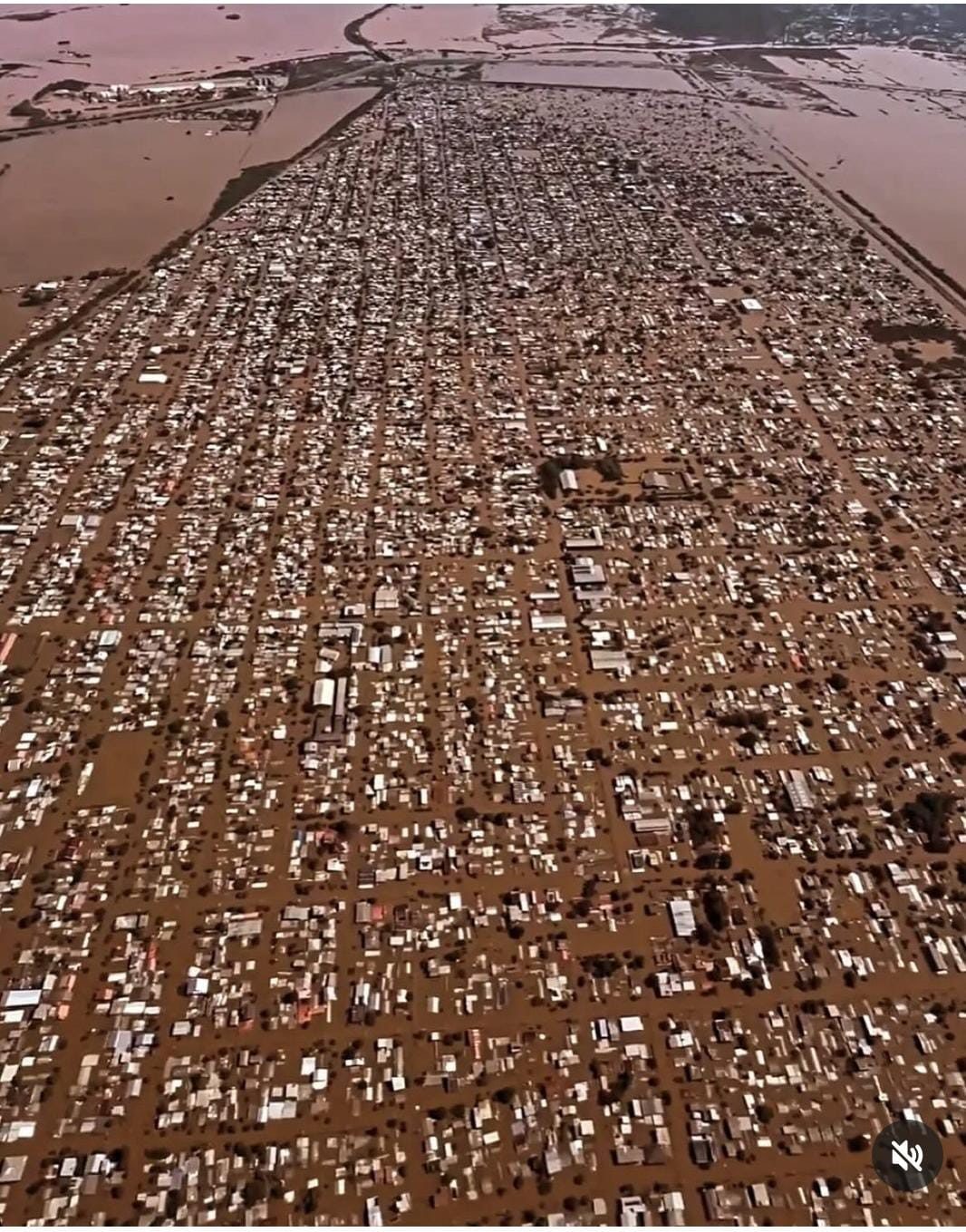
Fortunately, our region is receiving many donations, whether of supplies or volunteer time from all over the country. I was really pleased to see the number of civilians getting involved in rescuing people who are still stranded on their roofs.
Thank you very much for your email. I am very pleased to say that we are taking into account practically everything you advised in the email! Our biggest challenge is to communicate with the population and authorities. Our governor is adopting an interesting discourse of “exceptionality” to remove state bureaucracies and increase the speed of public action to resolve the various problems that are arising, which has pros and cons.
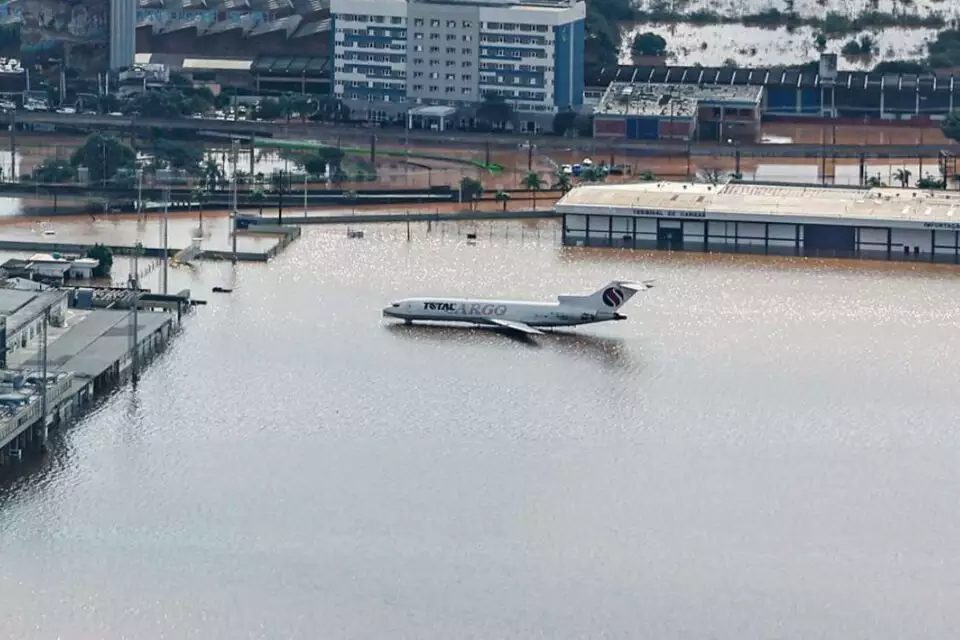
We are working very hard to help in the whole situation. Practically the entire office has stopped to dedicate themselves entirely to solutions within our reach. In three days of work, we managed to carry out four major actions:
However, we are very concerned about the medium to long-term solution…
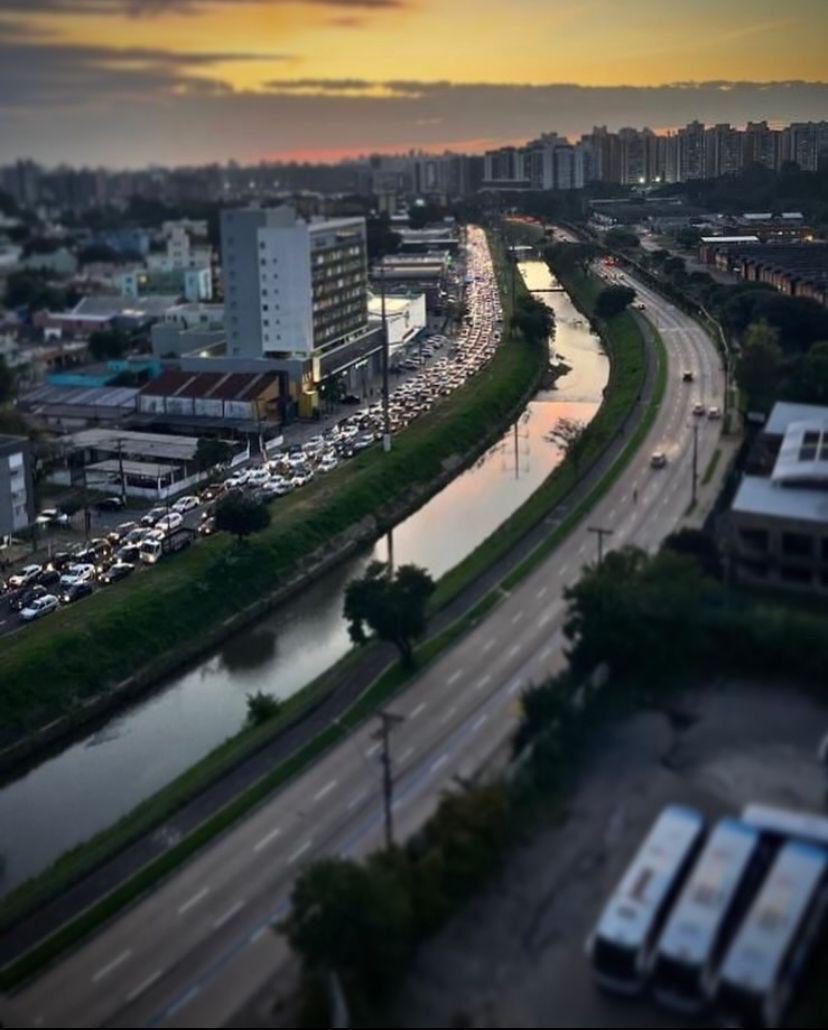
It would be wonderful if you [could help us with certain professional contacts], and even better if you could be a part of it… The opportunity to develop an even better city than before is very great, but I fear that the solutions some might propose would leave it worse than it used to be…
Wishing you a great seminar!
Rodrigo
From: Alain Bertaud
Sent: Wednesday, May 8, 2024
To: Rodrigo Rocha
Subject: Re: Porto Alegre – Brazil’s Worst Climate Crisis
Thank you for the update on the situation in Porto Alegre.
Looking at the map you provided, I am amazed by the number of vacant properties belonging to the state, many of them with excellent locations. The contour map reassures me that there are still many areas where people can take shelter. When your team has completed the inventory for Municipal and Federal properties and the capacity of each site for immediate shelter or land to be filled with temporary shelters, you will be able to advise on the best locations to allow the refugees to remain involved in Porto Alegre’s urban life.
Your team is doing all the right things. I do not have anything more to suggest.
Concerning [professional contacts] ….
Please convey my regards to your team. It must be hard to keep working when so many personal problems caused by the flood affect your own family.
Alain
From: Rodrigo Rocha
Sent: Wednesday, May 8, 2024
To: Alain Bertaud
Subject: Re: Porto Alegre – Brazil’s Worst Climate Crisis
Dear Alain,
We have gained access to all federal public properties. We have filtered those in our state and will make them available on the platform later today. The data for municipal properties is more difficult since there is no standard registration, but our team is trying!
Another interesting data we’ve managed to map are the homes within the flooded area. There are over 400,000 properties with various different uses. All of them are already available on the platform.
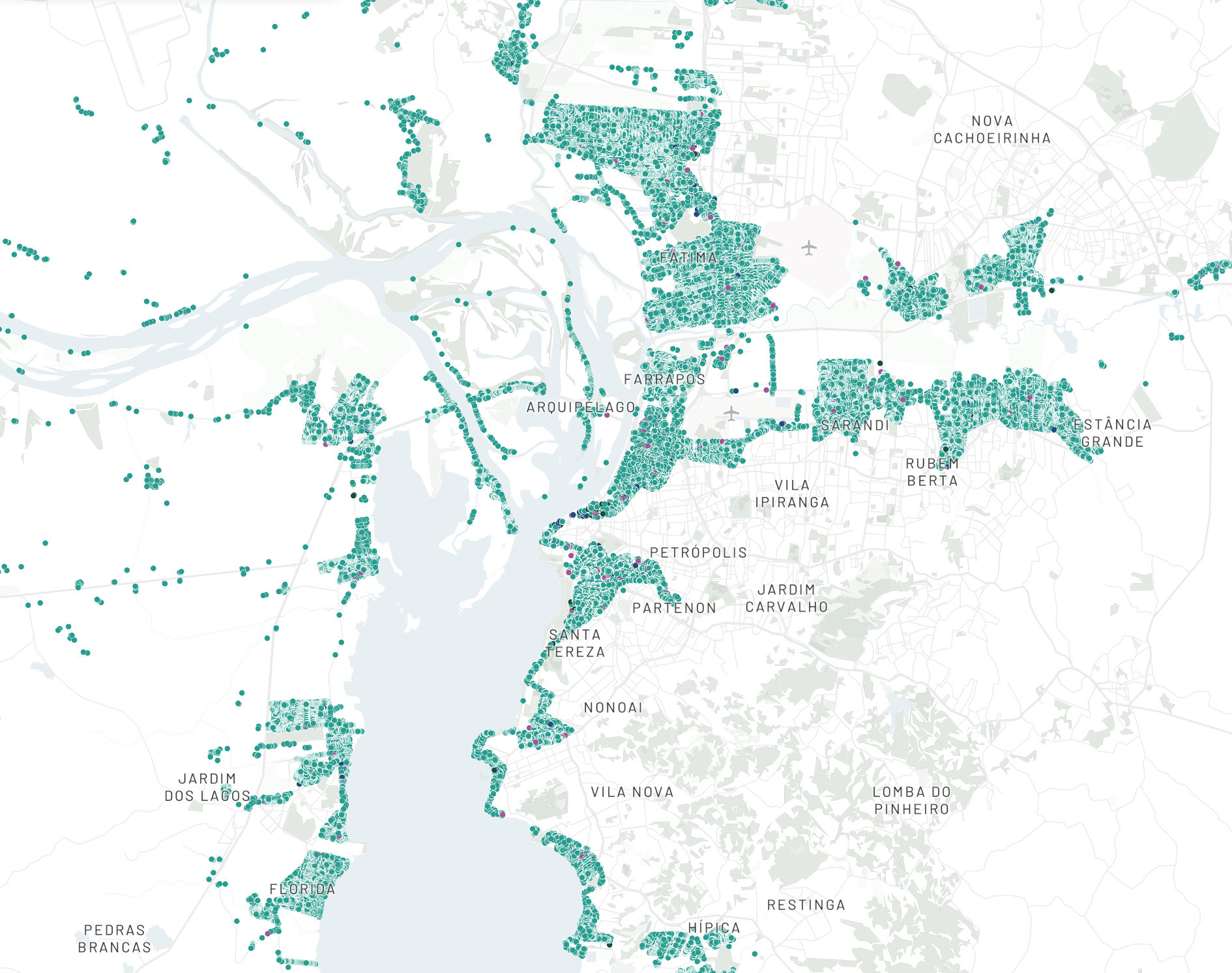
Good to know we are on the right track! I will keep you updated with news as soon as we have it.
Regarding [professional contacts]…
Yes, you can authorize Salim to publish whatever is needed! Best regards,
Rodrigo Rocha
Update: Support the recovery work of Responsive Cities Institute by donating via PayPal.